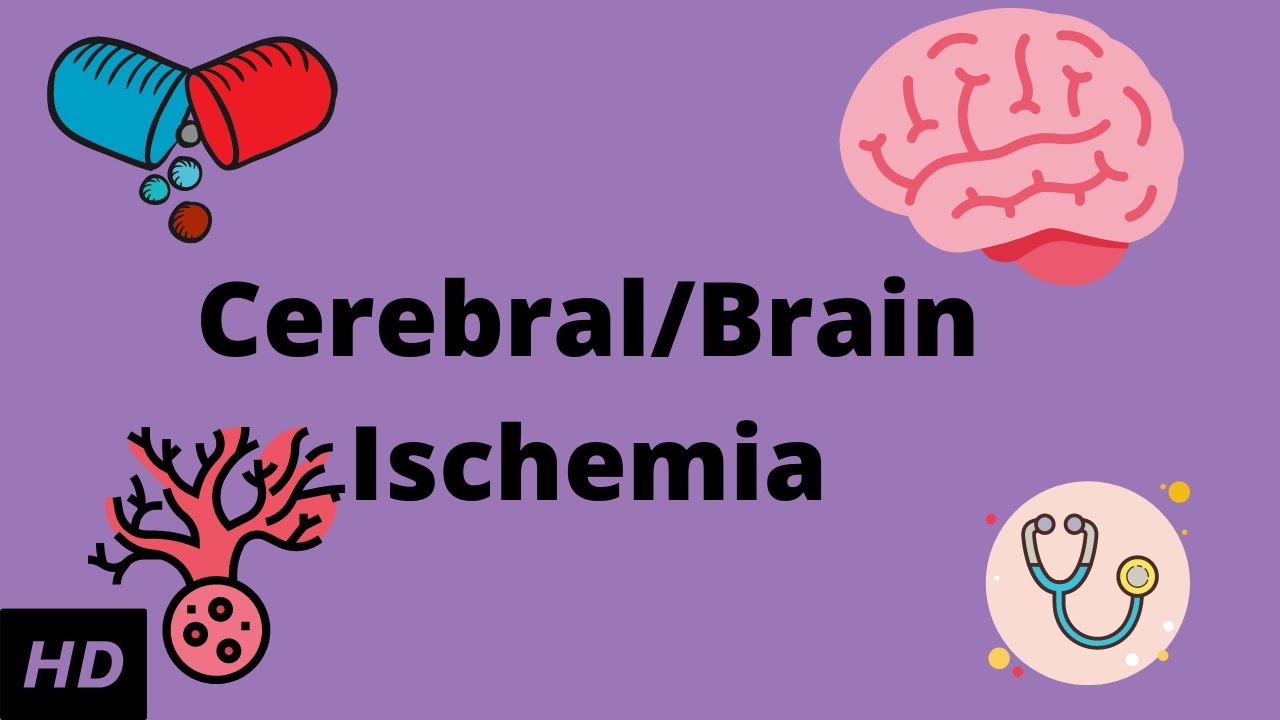Cerebral/Brain Ischemia, Causes, Signs and Symptoms, Diagnosis and Treatment.
Cerebral ischemia is a condition that occurs when there is insufficient blood flow to the brain to meet metabolic demand.
• When this occurs usually due to a blockage in an artery that supplies blood to the brain, it reduces the oxygen to the brain, leading to death of the brain tissue, cerebral infarction or ischemic stroke
• The longer the problem persists the more dangerous and damaging the ischemia will be
• An interruption in blood flow to the brain for more than 10 seconds causes unconsciousness and after a few minutes it generally results in irreversible brain damage
• It is called a transient ischemic attack (TIA) if the ischemia is brief and resolves before permanent damage can occur.
TYPES AND CAUSES
Focal ischemia is confined to a specific region of the brain and usually occurs when a blood clot has blocked an artery in the brain. Blood flow to that specific region of the brain reduces, increasing the risk of death to that particular area. It can either be caused by thrombosis or embolism
Global ischemia encompasses wide areas of the brain tissue and occurs when the supply of blood to the brain has stopped or greatly reduced. This is usually caused by a heart attack.
Other diseases and irregularities that may cause cerebral ischemia includes:
• Sickle cell anemia
• Plaque buildup in the artery
• Compressed blood vessels
• Congenital heart defects
• Ventricular tachycardia
• Extremely low blood pressure (hypotension)
• Heart disease



![[ID: Hx_A0iLhdr8] Youtube Automatic](https://bizimtube.com/wp-content/uploads/2021/03/id-hxa0ilhdr8-youtube-automatic-236x133.jpg)
![[ID: lp7w0UmpuIs] Youtube Automatic](https://bizimtube.com/wp-content/uploads/2021/03/id-lp7w0umpuis-youtube-automatic-236x133.jpg)
![[ID: s2-7T1TH-lY] Youtube Automatic](https://bizimtube.com/wp-content/uploads/2021/03/id-s2-7t1th-ly-youtube-automatic-236x133.jpg)
![[ID: b_lakC9M4UQ] Youtube Automatic](https://bizimtube.com/wp-content/uploads/2021/03/id-blakc9m4uq-youtube-automatic-236x133.jpg)
![[ID: r44yl6nPONs] Youtube Automatic](https://bizimtube.com/wp-content/uploads/2021/03/id-r44yl6npons-youtube-automatic-236x133.jpg)
![[ID: pAwto1YQjA8] Youtube Automatic](https://bizimtube.com/wp-content/uploads/2021/03/id-pawto1yqja8-youtube-automatic-236x133.jpg)
![[ID: XETG8azHiv4] Youtube Automatic](https://bizimtube.com/wp-content/uploads/2021/03/id-xetg8azhiv4-youtube-automatic-236x133.jpg)
![[ID: f3G_-S_2HUk] Youtube Automatic](https://bizimtube.com/wp-content/uploads/2021/03/id-f3g-s2huk-youtube-automatic-236x133.jpg)
![[ID: G8oWns54snA] Youtube Automatic](https://bizimtube.com/wp-content/uploads/2021/03/id-g8owns54sna-youtube-automatic-236x133.jpg)
![[ID: s0lIFXhu6aw] Youtube Automatic](https://bizimtube.com/wp-content/uploads/2021/03/id-s0lifxhu6aw-youtube-automatic-236x133.jpg)
![[ID: 4UTd2Ev8eYg] Youtube Automatic](https://bizimtube.com/wp-content/uploads/2021/03/id-4utd2ev8eyg-youtube-automatic-236x133.jpg)
![[ID: RKBGBjVJBxQ] Youtube Automatic](https://bizimtube.com/wp-content/uploads/2021/03/id-rkbgbjvjbxq-youtube-automatic-236x133.jpg)